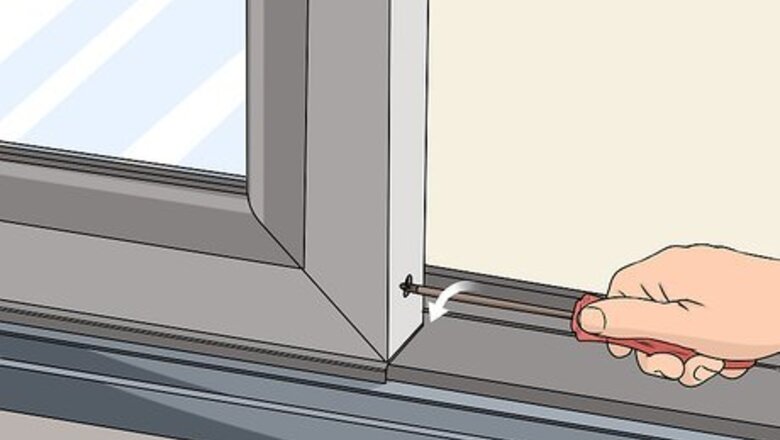
views
Removing the Sliding Doors
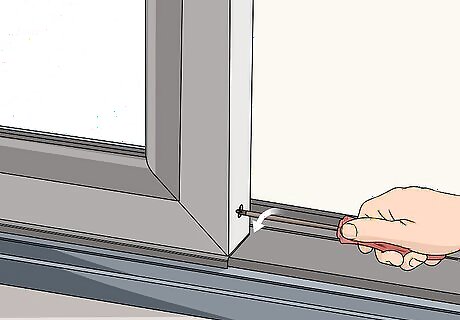
Loosen the adjustment screws on each glass door. Adjustment screws lock the doors in place. They are located near the bottom of the door on each outside edge. Take a screwdriver and turn the screw counterclockwise to loosen it. Then do the same thing on the other side of the door. Repeat this on both doors to loosen them. To prevent doors from falling over, do one at a time. Having someone nearby to hold the doors so they don't fall is a good safety measure.
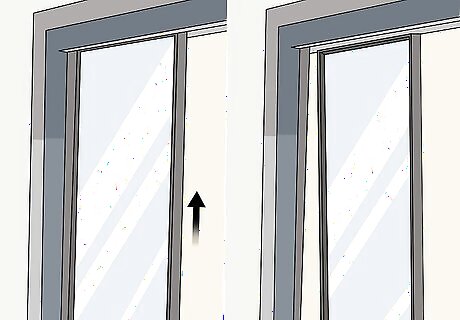
Lift each door up and pull it out from the bottom. With the adjustment screws loosened, you can easily remove each sliding door. Open the door halfway and grasp it firmly from both sides. Then lift up so the door comes off its track. Pull outward from the bottom to remove it from the frame. Use the same procedure to remove the other door. Glass doors can weight over 50 pounds (23 kg) each, so lift with your legs and keep the stress off your back. If you have trouble lifting the doors, have a partner help. Put the doors away in a safe place so you won’t trip on them while you work.
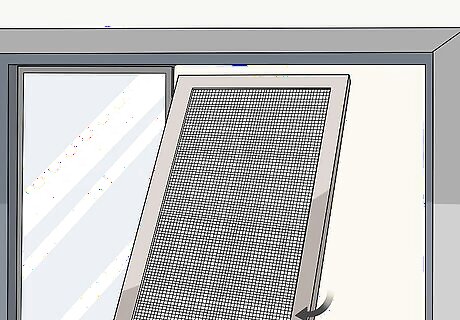
Pull out the screen doors. The screen doors pull out the same way the glass doors do. They have adjustment screws on their top edge. Loosen these to free the door. Then lift them up and pull from the bottom to remove them. Some screen doors aren’t secured very tightly and come out without loosening the adjustment screws. Try lifting each screen and seeing if it comes out on its own before loosening the screws.
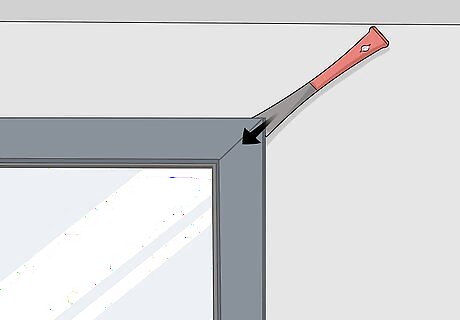
Pull off any wood trim or molding around the door frame. This will get in the way when you remove the sliding door tracks and install the French doors. Use a prybar and remove any trim or molding. Store it away in a safe place so you won’t trip on any pieces. If you want to keep and reinstall the molding, then remove it gently. If you’ll be replacing the molding, then don’t worry about breaking it.
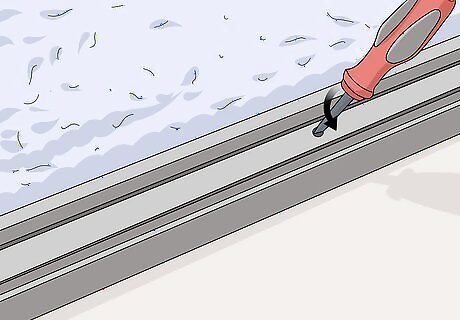
Remove all the screws around the sliding door tracks. Different installations have screws in different locations. Usually, there is at least one near each door hinge, plus a few more scattered on the top and bottom. Work around the inner perimeter and remove all the screws you see. Some older installations may have nails instead of screws. In this case, use a prybar or hammer to pull them up. If you have a power drill, this job will be much easier. Set it to run in reverse to pull out screws.
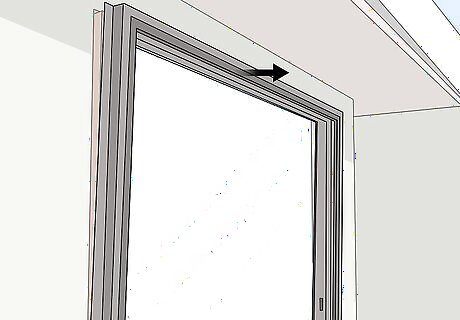
Pull the door track out from the outside. With all the screws or nails removed, the old door track should move freely. Go to the outside and pull the track from the top so it tips toward you. Guide it down and then pull it out of position. If the track doesn’t budge when you pull it, you may have missed some screws or it’s secured with an adhesive. Go back and check for more screws, then pull harder to undo any adhesive. Some door tracks are also secured under the home siding. If the door won’t move, check here. If there are screws or nails under here, you’ll have to cut back the siding to remove the doors entirely.
Placing the Sill Pan
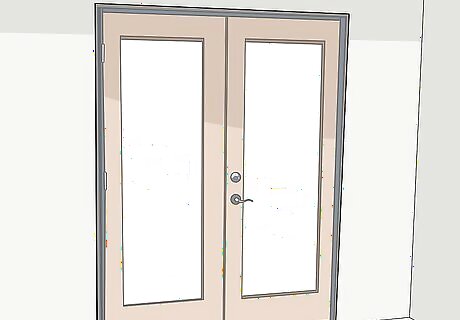
Get a door set that fits into the space you already have. French doors can come in a variety of sizes. Measure the height and width of your existing door frame. Then, look for a door set that matches that size. Leave ⁄4 inch (0.64 cm) to ⁄2 inch (1.3 cm) between the frame and the doors so there’s room for them to fit. You can fill that space with caulk later on. You may be able to custom-order a door set that fits your frame if it’s an odd size. French doors come in premade kits or you can build them from scratch. For simplicity, purchase a premade kit.
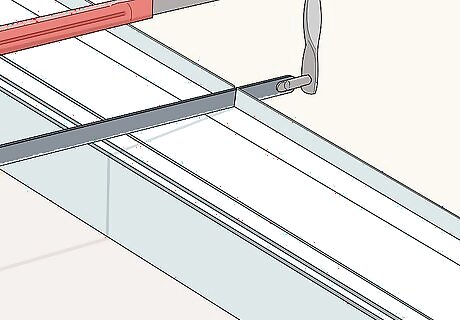
Cut the sill pan to fit into the door frame. Premade door kits come with a sill pan to catch water. Measure the width of the door frame. Then measure that length on the provided sill pan and make a line. Use a saw to cut along that line. Double check that your cut was correct before placing the pan down.
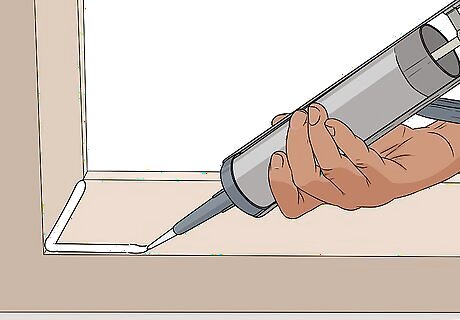
Apply 3 rows of adhesive caulk along the floor of the door frame. This adhesive holds the sill pan in place without the need for screws. Squeeze 3 rows out from one end of the frame to the other. Some kits also instruct you to place the adhesive around the perimeter of the door instead of in 3 rows. Follow whichever directions you’re given. Check that the caulk you use is labeled "adhesive," or it won't bond well.
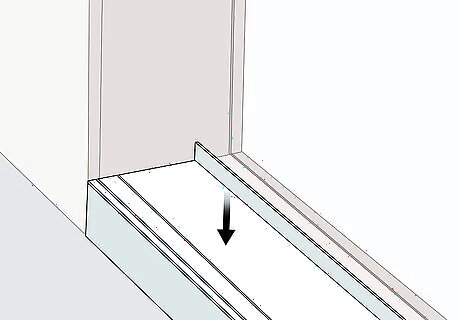
Press the sill pan onto the caulk. Take the pan sill and place it on the adhesive. Press it down hard and work out any air bubbles or uneven spots. Use a roller or similar round object to roll across the pan and flatten it out further. Don't delay in pressing the pan down as soon as you squeeze out the adhesive. It may start drying quickly.
Installing the French Door Frame
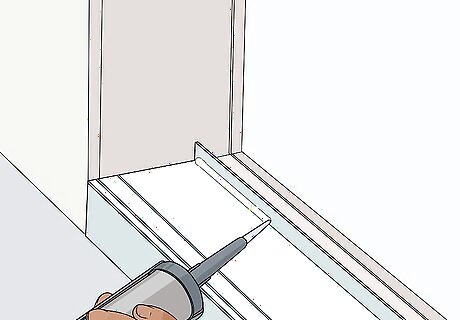
Apply adhesive caulk along the perimeter of the sill pan. Use the same caulk that you used to glue down the sill pan. Squeeze more out around the perimeter of the sill.
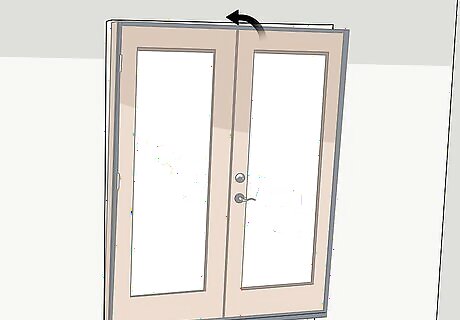
Seat the door frame into the sill pan. Tilt the door frame into the opening starting from the bottom. Press the bottom into the caulk on the sill and then straighten the frame out so it’s fully in the opening. Hold it in place for a minute to let the adhesive bond to it. This will be difficult if you’re alone. Have a partner help you carry and place the door. In premade kits, the doors usually come already attached to the frame. If they aren't already attached, follow the product instructions for attaching them after you install the frame.
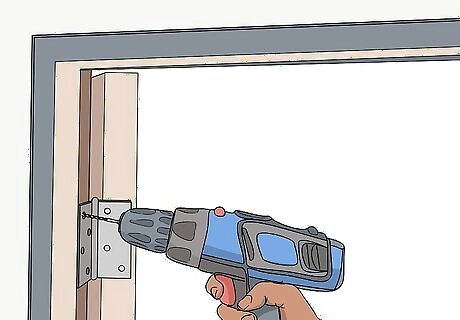
Drill a 3 in (7.6 cm) screw through the hole in each door hinge. Open both doors so you can reach their hinges. Premade kits usually have holes in the hinges for you to drill screws through. Use 3 in (7.6 cm) screws so they pass through the frame and into the wall, locking the frame in place. If the door frame doesn’t have pre-drilled holes, then drill the screw just behind the center of each hinge. Check the hinges and make sure all the screws are tightened and that the frame of the door is square.
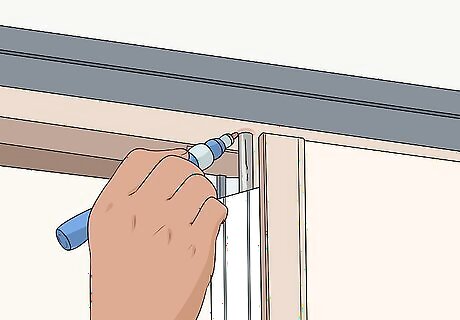
Close 1 door at a time and circle where the shoot bolts hit. The shoot bolts lock French doors in place. Find the right position for the strike plates by closing each door and engaging the bolt to see where it hits the frame. Use a marker and circle where each bolt hits on the top and bottom of the frame. Remember that French doors have shoot bolts on the top and bottom. Don’t miss the bottom when you’re measuring.
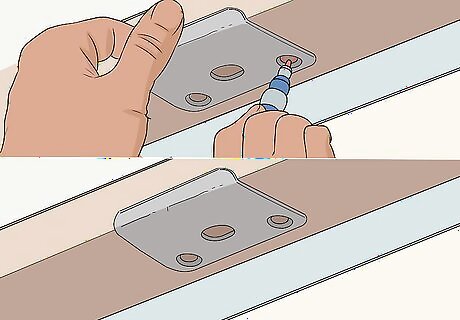
Attach the strike plates and drill a shoot bolt hole through each. Take a strike plate for each shoot bolt location. Each strike plate has 3 holes, 1 in the middle for the bolt and 1 on each side for a screw. Hold the shoot bolt so the circle you drew on the frame is in the center of the middle hole. Then drill a screw through each side hole and into the door frame. Finish by drilling a hole through the center of the strike plate for the bolt to enter. Use this same process for the 3 other strike plates. There should be 4 total. Test the strike plates when you’re done. Close each door and engage the bolts. Make sure each bolt enters the hole you drilled.
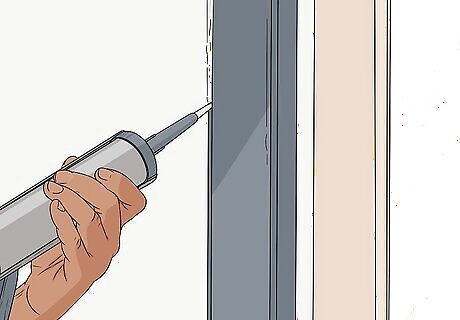
Fill the space on both sides with caulk. Once the door frame is secure, seal all the spaces. Use caulk and fill in the space on the top and sides of the door. Then let it sit for 24 hours to dry. Remember to seal the inside and outside section of the door. Openings on either side could lead to leaks.
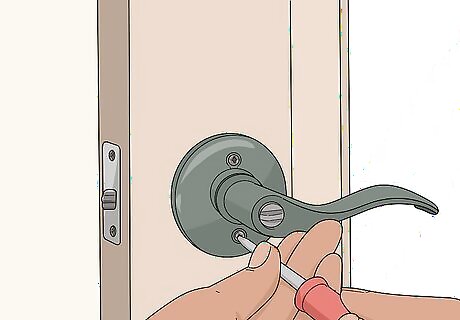
Install the knobs and locks according to the product instructions. The final part of the job is installing the hardware. Premade kits should come with their own knobs and locks. These may have specific installation instructions, so follow the directions given. If your kit doesn’t come with hardware, then purchase a kit from a local hardware store.
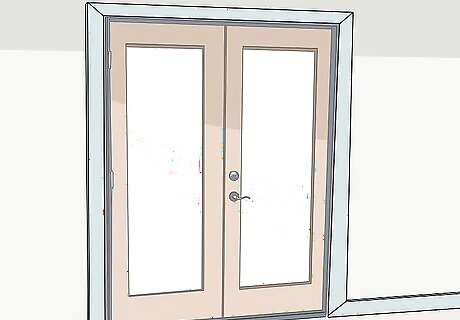
Replace the door trim when the installation is complete. If you want to reuse the trim you removed from the sliding door, then reinstall them around the French doors. Otherwise, get a new decorative trim from the hardware store and attach it around the door frame. Then enjoy your new French doors!




















Comments
0 comment